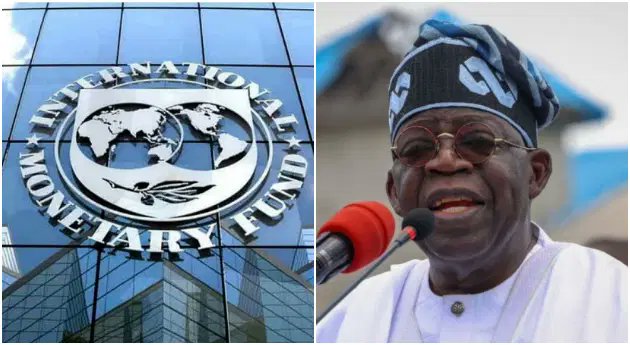
IMF Urges Nigeria to Boost Tax Revenue: A Deep Dive into Economic Challenges

The International Monetary Fund (IMF) has recently called on Nigeria to enhance its tax revenue by broadening the tax base and cracking down on tax evasion, as highlighted in a post by Shegzeblog on X.
This recommendation comes as Nigeria grapples with significant economic challenges, including a persistently low tax-to-GDP ratio, which hampers its ability to fund essential sectors like healthcare, education, and infrastructure.
The IMF's advice underscores the need for structural reforms to ensure sustainable growth in Africa's largest economy.
Nigeria's tax-to-GDP ratio currently hovers between 3% and 4%, one of the lowest globally, according to IMF research.
This figure falls far below the 12.75% threshold that the IMF identifies as a benchmark for achieving accelerated economic growth.
A low tax-to-GDP ratio means the government struggles to generate sufficient revenue to meet its developmental needs, leaving critical sectors underfunded.
For comparison, many other developing nations maintain higher ratios, enabling them to invest more in public services and infrastructure.
Nigeria's shortfall in this area highlights the urgency of the IMF's recommendations.
A key area of concern is Nigeria's Value Added Tax (VAT) performance. VAT revenue in Nigeria accounts for less than 1% of its GDP, a stark contrast to the ECOWAS regional average of 4%.
This gap is largely attributed to poor compliance, with payment adherence estimated at 15-40%, alongside numerous tax exemptions that shrink the taxable base.
These exemptions, often granted as incentives, reduce the pool of taxable entities, placing a heavier burden on compliant taxpayers.
The inefficiencies in VAT collection further exacerbate the revenue shortfall, limiting Nigeria's ability to address pressing socio-economic challenges.
By expanding the tax base and improving enforcement against tax evasion, Nigeria could unlock significant resources to bolster underfunded sectors.
For instance, the country's healthcare and education systems are among the least funded globally, according to IMF analyses on resource mobilization.
Increased revenue could enable investments in these areas, reducing inequalities and improving quality of life.
In healthcare, where the poor spend nine times more than the wealthy due to inadequate public funding, as noted in a Dejusticia report, better financing could alleviate the burden of out-of-pocket expenses.
Similarly, education, critical for long-term development, would benefit from enhanced funding, helping to build a skilled workforce.
The IMF's call to action is a wake-up call for Nigeria to reform its tax system, ensuring it captures more revenue while promoting fairness and compliance.
Addressing these challenges could pave the way for sustainable economic growth and improved living standards for millions of Nigerians.


